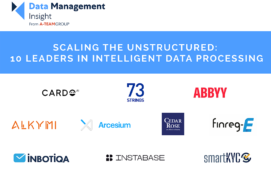Asset Control has added a risk data management component designed to help risk managers improve risk data governance to its AC Plus data management platform. Called AC Risk Data Manager, the component uses the underlying data management platform to integrate risk data from across an organisation and allows risk managers to view and manage risk data structures such as yield curves, volatility surfaces and stress test scenarios.
Martijn Groot, vice president of product strategy at Asset Control, says AC Risk Data Manager is a response to client requests for better risk data controls and more end user functionality to create and calibrate risk factors. These requirements are supported by centralised risk data, audit trails, tools to define risk factors and visualisation that includes views designed for specific types of risk data.
The component improves on less user friendly risk data management included in the AC Plus data management platform and is expected to be used primarily for market risk management and stress testing. It also plays well into regulations such as BCBS 239, which requires risk data aggregation, control and governance, and the Fundamental Review of Trading Book, which requires historical risk data.
Groot comments: “By introducing AC Risk Data Manager, we have strengthened our offering in the complex and critical area of risk data and empowered risk management teams to efficiently govern their data and stay ahead of the evolving regulatory landscape.”
AC Risk Data Manager is available immediately and is being used by two early adopters, both large banks, one in the US and the other in Europe. Groot expects the solution to appeal to a large proportion of Asset Control’s customer base, about two-thirds of which is made up of banks. As the software is developed, in the short-term with more end user capabilities and out-of-the-box stress testing scenarios, he expects it will also become attractive to large asset managers and pension funds that use the AC Plus data management platform.
In terms of other developments at Asset Control, Groot says the company is planning to add quality metrics such as data accuracy, timeliness and completeness to the AC Plus platform as well as a reporting layer that will show quality levels and the amount of manual intervention in data management processes. The company is working with clients on the metrics and reporting mechanism, which will become part of the AC Plus product offer.
Subscribe to our newsletter




